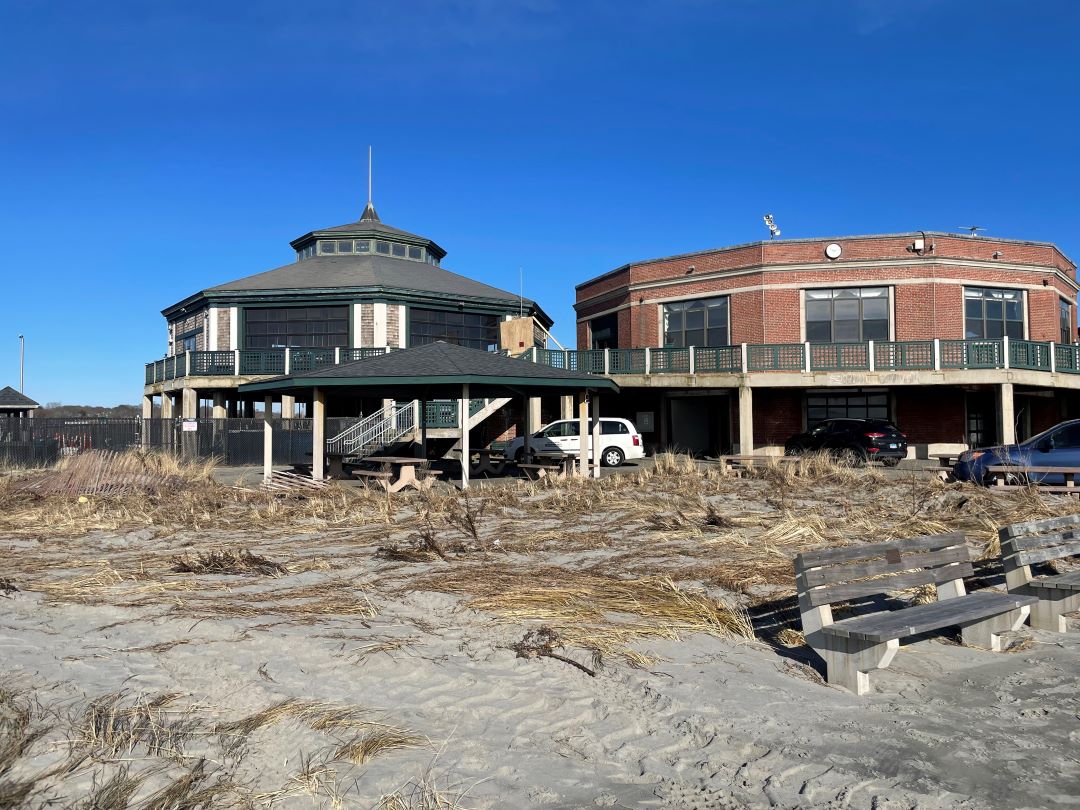Where is RIDOT’s Carbon Reduction Plan? Climate Advocates Would Like to Know
September 20, 2023
A recent letter signed by a range of local climate and community advocates wants to know where the Rhode Island Department of Transportation’s Carbon Reduction Plan is hiding. They noted the development of the plan represents a critical step in tackling greenhouse gas emissions from the transportation sector.
That sector, the state’s largest source of carbon emissions, is responsible for nearly 40% of the climate-changing pollution spewed locally. In fact, between 2016 and 2019, transportation emissions increased by nearly 9%. Rhode Island is trending in the wrong direction when it comes to mitigating the climate crisis.
The 23 organizations, including the Acadia Center and Grow Smart Rhode Island, that signed the 5-page letter sent to RIDOT director Peter Alviti noted transportation is at the center of strategic actions the state needs to advance to meet Act on Climate mandates.
The 2021 law requires the state to develop a plan to reduce all climate emissions from transportation, buildings and heating, and electricity to 45% below 1990 levels by 2030, 80% below 1990 levels by 2040, and net-zero by 2050.
The act also requires the Executive Climate Change Coordinating Council (EC4) to update its plan for carbon reduction every five years and mandates the creation of an online transparent public dashboard to track emissions reductions and sources of energy annually.
Despite the inclusion of the creation of a Carbon Reduction Plan (CRP) in the EC4’s 2022 Climate Update, the Sept. 19 letter noted “there has been limited mention of the status of development of the plan throughout 2023 for engagement by stakeholders.”
RIDOT presented on the CRP at the June EC4 meeting, “with limited opportunity for discussion by the EC4 or public comment,” according to the letter. The CRP hasn’t been raised as a topic of discussion at any Transportation Advisory Committee meeting this year.
The letter’s signers noted CRPs from the states must be completed by Nov. 15.
“To date, RI DOT has failed to facilitate any opportunity for public review of methodology or strategies for feedback and input from stakeholders,” the letter’s signers wrote. “With less than two months remaining, we as climate advocates are concerned by the absence of public process surrounding a document with such significant implications for how transportation projects will be analyzed and funded in the years and decades to come.”
The letter urges RIDOT to publicly share the current draft of the CRP in an online format that allows for expedited public review and comment and to host a public forum by Oct. 20 to provide ample time for staff to provide a summary of public and stakeholder feedback to the Transportation Advisory Committee before its scheduled Oct. 26 meeting.
The Sept. 19 letter to Alviti is just the most recent correspondence sent by climate advocates to Rhode Island officials about the need to reduce transportation-sector emissions.
In July 2022 a group of 36 organizations sent an 8-page letter to Rhode Island’s gubernatorial candidates outlining their concerns about the state’s transportation system.
“Rhode Island’s outdated transportation system is failing to keep pace with the needs of our residents, our economy and our planet,” according to the letter. “We believe that Rhode Islanders deserve a transportation system that provides for their diverse mobility needs, reduces air pollution, improves local economic development, supports affordable housing development, and cuts greenhouse gas emissions.”
The letter focused on the way Rhode Island moves about, because without significantly reducing the greenhouse gases emitted by the transportation sector the Act on Climate mandates have no chance of being met, according to the letter’s signers.
One of the letter’s signers, April Brown of Providence’s Racial & Environmental Justice Committee, told ecoRI News that RIDOT routinely stands in the way when it comes to mitigating the climate crisis and eradicating climate injustices.
“The current officials for that department are just profoundly and deeply entrenched in this idea that they don’t have to come to the community they serve with any kind of transparency in the work they do and the decisions they make,” said Brown, who also signed this month’s letter.
Editor’s note: Among the letter’s signers is Emily Koo, the program director of the Acadia Center’s Rhode Island chapter. She also is president of the ecoRI News board of directors.




Traffic mitigation has been supposedly eleviated by the high speed ferry out of Providence to Newport. There was a stop in Portsmouth that serviced one commuter. The ferry is subsided by taxpayers dollars. It takes longer to commute by ferry to Providence than to drive a car. The bike path to Providence is still owned by the railroad. If this deadline needs to be met by a certain date then it’s high time the possibility of rail service to Providence up the East Bay corridor needs to be reexamined.